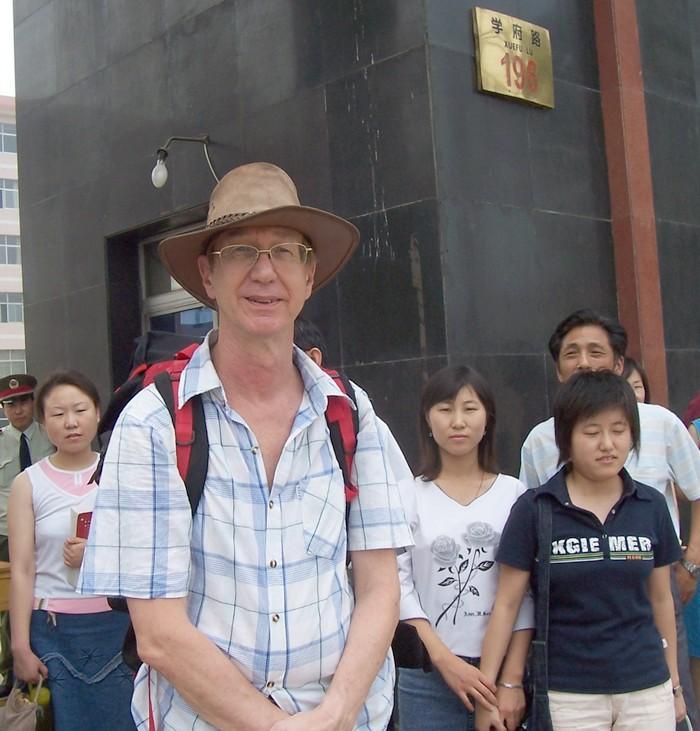| Biggest trading scandal in the world? | |
|---|---|
| Jan 29, 2008 21:28 | |
 | Thank you for the update JIMMYB. |
| Jan 29, 2008 22:27 | |
 | western justice system prevails /works as long as the scapegoat is willing to consume energy/time to fight. heard 3 traders from scotia (canada ) dundee fired in several minutes without reasons several days ago, i am not tracing this rumor, what's happening? |
| Jan 30, 2008 14:47 | |
 | Didn't hear about that one, what's your source? I'll check Bloomberg, Yahoo Financial and maybe several others to see if I can find anything. |
| Jan 30, 2008 19:43 | |
 | Actually, the laissez-faire economy has never prevailed since the implementation of Roosevolt's New Deal in 1930s. After the WWII, most capitalist countries placed strict control on the states' economy. The states' intervention and regulation assure the economy to run on the right track. laissez-faire economy encourages irrational competition, which often leads to the chaos of economy. The laissez-faire economy is only applicable in Adam Smith's time. |
| Jan 30, 2008 20:40 | |
 | "Will the " free market" work in China? Yea ,for about 50yrs. maybe." No markets are really free in the world according to your requirements. The markets in the developed countries are no exception. Political candidates are still influenced through donations by corporation. Unfair competition stil exists in the market. As you say, some people or corporations always break the rules. |
| Jan 30, 2008 21:00 | |
 | I'm going to guess that Jerome Kerviel will receive a prison sentence of some duration and that Societe Generale will just receive "a slap on the wrist" or be fined some insignificant $amount for their part. Time will tell. |
| Feb 3, 2008 09:14 | |
 | i would suggest that China has one of the most laissez faire economies in the world at present. There is plenty of beaurocracy but when you get down to it businesses are freer here to do what they want than any develped country. Just look at the pollution and the lack of enforcement of labour rules which are supposed to protect workers. |
| Feb 4, 2008 20:52 | |
 | When did China start opening it's doors to privatization, was it the late 1970's or during the 1980's? And I suppose the reasoning was that it was the only way to be able to compete in the world market. But it's a shame that the social safety net for the workers has been taken away. Oh, but the globalized markets are just luvin' it. |
| Feb 4, 2008 22:13 | |
 | Gary, Paul, Look at those labors who mfg IPOD NANO. (If you ask a village labor to install a refurbished PC in China, labor cost /per PC, I guess is rmb 100) iPod City: Apple criticized for factory conditions By Tanya Klowden | Published: June 12, 2006 - 07:09PM CT If you are fortunate enough to live in the UK, you may have seen an interesting piece in the Mail on Sunday this past weekend. The Mail sent some reporters to Longhua, China (twenty minutes from Hong Kong) and Suzhou, which borders Shanghai to visit two factories which bring forth the iPods, Nanos, and Shuffles that are "designed in California" and tremendously popular around the world. There they found conditions that to our Western ears sound positively Dickensian. "We have to work too hard and I am always tired. It's like being in the army. They make us stand still for hours. If we move, we are punished by being made to stand still for longer…We have to work overtime if we are told to and can only go back to the dormitories when our boss gives us permission…If they ask for overtime we must do it. After working 15 hours until 11:30pm, we feel so tired." |
| Feb 4, 2008 22:14 | |
 | The first facility, run by Taiwanese company Foxconn, is described as "the original and largest plant to be built in mainland China. It's a sprawling place where 200,000 people work and sleep." Many are already questioning this figure as being an error of some sort, as that would basically be a city the size of Tallahassee, Florida. It is worth noting, however, that the Foxconn facility produces electronics equipment for a variety of IT companies besides Apple, and the Longhua facility holds one-fifth of their "million-strong workforce." iPod Nanos are produced in a five-story factory at the facility, stationed with police officers who check everyone who enters and leaves to "thwart rivals intent on industrial espionage." For 15 hour workdays, pay at this facility is approximately US$50 per month. The second facility visited benefited from its proximity to Shanghai. Dormitories are outside the plant, work is only 12 hours of the day, and pay is almost US$100 per month (the security guards who watch over the workers earn up to US$150), of which up to half is paid back to the company for housing and food. The remainder is typically sent home to families, many of which are struggling to bring in that kind of money farming. Given that the iPod nano components cost approximately US$75 but have around 400 parts, cheap labor becomes very important at keeping the price competitive. One guard at one of the facilities visited understood this: "Payment is lower because the boss wants to reduce our costs," he says. "Prices need to be competitive to get orders from abroad." What results is an unpleasant catch-22. Overseas companies need to keep their costs down so first-world consumers can afford their products and they can stay in business. In places like China, the low wages and shocking conditions present an opportunity not unlike what came of the Industrial Revolution. James Kynge, author of China Shakes The World, argues that despite Westerners' perceptions about working conditions in factories, the wages are a godsend that are transforming rural China. "The money sent back to farming families from the workers now exceeds the amount made from agriculture," he says. Further, China has no unions, which allows subcontractors like Foxconn to keep wages artificially low. Workers will be lucky if they make two percent of the profit from an iPod. Foxconn will make less than ten percent. Far more money is spent by Apple on marketing the product than making it. |
Post a Reply to: Biggest trading scandal in the world?









 Copyright © 1998-2026 All rights reserved.
Copyright © 1998-2026 All rights reserved.